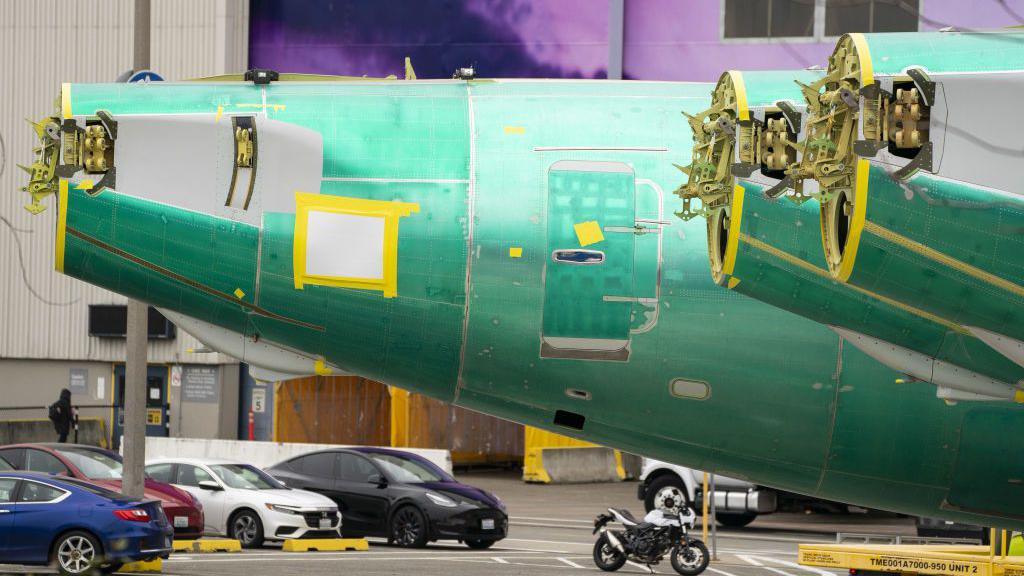Boeing staff report pressure to lower standards

- Published
Fixing Boeing, the troubled US aerospace giant, is a "very long-term project", the company's top regulator said on Wednesday.
The head of the Federal Aviation Administration (FAA) made the comments to Congress, as lawmakers urged the agency to be tougher on the firm and force it to fix its problems.
Ahead of the hearing, Democratic lawmakers released the results of a damaging internal staff survey that Boeing conducted in May, which found more than half of Boeing workers felt that "schedule pressures" had caused their team to lower its standards.
Less than two-thirds felt they had the training or tools and materials to do their job properly. Boeing said it knew it had work to do.
“We’ve taken important steps to foster a safety culture that empowers and encourages all employees to share their voice, but it will require continuous focus," Boeing said in a statement.
"Under the FAA’s oversight, we are continuing to implement our comprehensive plan to strengthen Boeing's safety management, quality assurance and safety culture.”
The safety and quality of the company's planes have been in the spotlight since a piece of a new passenger plane broke off in mid-air in January.
The incident raised concern that the company had not done enough to improve its manufacturing processes and safety controls, despite promises made after two its planes were involved in fatal crashes five years earlier.
On Wednesday Senator Richard Blumenthal said that regulators needed to push the company more aggressively to make changes.
He said he was sceptical that the current plan for improvement adopted by the FAA and the company would make a difference, saying they looked like the company was "recycling" safety commitments it had made years earlier.
FAA Administrator Mike Whitaker faced questions about the agency's oversight of Boeing
His concerns about lax oversight were shared by some Republicans on the panel, who noted that whistleblowers from within Boeing were still reaching out to lawmakers with concerns about retaliation and efforts by the company to choose its inspectors.
"We need tough oversight," Senator Josh Hawley said. "I want to make sure your agency is holding their feet to the fire."
FAA Administrator Mike Whitaker said he felt the right rules were now in place to improve the company, pointing to an FAA order that limits Boeing to producing 38 aircraft a month and the agency's demand that Boeing use better technology to track tools and materials.
"It's a much more intensive level of engagement and we plan to maintain that indefinitely," he said. "The goal here is a culture change at Boeing and that is a very long-term project."
But Mr Blumenthal said that the production cap was part of a series of "half measures", noting that Boeing was currently making far fewer aircraft than it could.
He criticised the 11 inspectors the FAA has sent to Boeing's factory in Renton, Washington as "inadequate" and raised concerns that FAA was giving Boeing too much heads-up about regulator audits.
Mr Blumenthal said he thought there would be more effective ways to pressure the company to change, such as capping executive pay.
The hearing occurred as more than 30,000 factory workers in the Pacific northwest remain on strike over pay and other benefits.